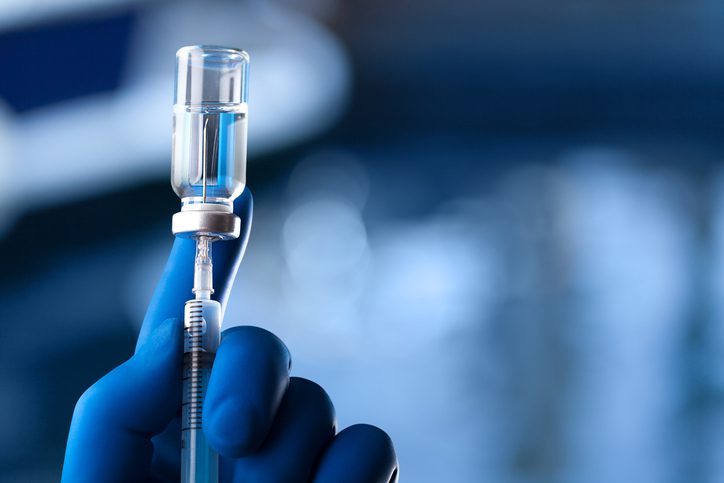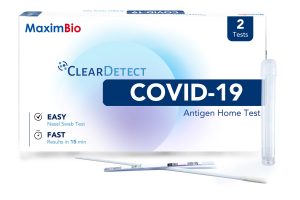
Why the First Clinical Cure for HIV Will Likely be Developed in Maryland
By Chris Frew | September 18, 2023
| BioBuzz has been connecting the life science workforce since 2009. We’ve built an expansive community in the Mid-Atlantic with a national readership that spans from Massachusettes to Florida, and New York to California. For our next chapter, we’re building a proprietary talent logistics model to help employers source and hire life science talent. Learn more. |
As was true in the 1980s, Maryland’s DNA Valley remains the epicenter of HIV/AIDS research and development. As we first covered in our previous article from 2019, there has been great progress that more strongly supports why the first clinical cure for HIV will likely emerge from Maryland.
Beginning with the now renowned NIH researcher, Dr. Robert Gallo, whose groundbreaking research in 1983 and 1984 led to co-discovering and confirming the virus responsible for the killer disease – human T lymphotropic virus type III (HTLV-III) to companies today like American Gene Technologies (AGT) who are actively pursuing a potential cure – Maryland has continued to lead the fight against HIV.
Gallo and team went on to develop the first test that identified the virus in humans—the HIV-antibody blood test, which was step one in the fight to end AIDS that unfortunately persists to this day. According to WHO, 39.0 million people globally were living with HIV at the end of 2022, and 1.3 million were newly affected during the year.
Antiretroviral therapy (ART) continues to be the primary treatment for the millions living with this disease. While this lets people maintain a near-normal quality of life and prevent continued spread, it does require strict, regular, adherence and has several adverse side effects.
Additionally, the drugs are very costly. According to HIV.gov, the total annual undiscounted spending on ARV drugs reached $22.5 billion in 2018, more than doubling since 2010. ART was among the top five therapeutic classes in non-discounted spending on medications, after medications for diabetes, autoimmune diseases, cancer, and respiratory disorders, so it’s incredibly costly to patients and the healthcare system.
These Maryland Life Science Organizations Are on a Mission to Prevent and Cure HIV
American Gene Technologies® & Addimmune™
A new company dedicated to delivering a functional cure for people living with HIV
Located in Rockville, MD, American Gene Technologies (AGT) has spent the past 15 years developing gene-based treatments and development tools to enable the next generation of curative gene and cell therapies. This August, it was announced that AGT’s HIV business would be going public through a merger with a special purpose acquisition company (SPAC), 10X Capital Venture Acquisition Corp. III (10X III; (NYSE: VCXB). Following the merger, the combined company is expected to change its name to “Addimmune” and trade under the ticker symbol “HIV” with a pre-money enterprise value of $500 million. Prior to the merger, AGT will spin out its non-HIV business, the newly formed entity is expected to retain and operate under the AGT name.
Once the merger is complete, the Addimmune organization will be dedicated to harnessing AGT’s gene and cell therapy technology to develop a functional cure for HIV. Central to those ambitions is AGT’s lead clinical asset, AGT103-T, a lentiviral vector-based treatment designed to give the immune system the tools it needs to win the war against HIV. Phase 1 human trials showed promising data, prompting AGT’s team to pursue further clinical development. If successful, AGT’s gene therapy could induce HIV remission without the need for antiretroviral medication, which would make it the world’s first functional cure.
Being located in Rockville provides advantages for AGT, as the presence of laboratory suppliers, research groups, and clinics creates an ecosystem that facilitates innovative projects like AGT’s efforts to functionally cure HIV. AGT’s CEO, Jeff Galvin, who is expected to become CEO of Addimmune, believes that the region has all the things it needs to become the epicenter of gene therapy. “Silicon Valley’s digital revolution innervated our world with computers, and DNA Valley’s gene therapy revolution will attempt to write disease right out of the human experience.”
Caring Cross
Caring Cross’ highest priority cure project is the development of their anti-HIV duoCAR-T cell therapy for HIV-1.
Caring Cross is dedicated to accelerating the development of advanced medicines and enabling access to cures for all patients, everywhere, and in October 2022 the company announced the dosing of the first participant in a Phase 1/2a clinical trial evaluating the organization’s Anti-HIV DuoCAR-T cell therapy. As described in the press release their Anti-HIV DuoCAR-T cell therapy is designed to potentially eliminate HIV-infected cells and suppress HIV infection long-term in the body after a single infusion.
Pre-clinical studies with anti-HIV duoCAR-T cells have shown the following results which represent the first-ever such effects in an animal model after a single treatment.
- Almost complete inhibition (>96% inhibition) of HIV replication when tested against broad HIV-1 strains found around the world.
- Elimination of actively HIV-infected cells in animal models after infusion of anti-HIV duoCAR-T cells.
- Protection of CD4+ T cells from HIV infection in animal models after a single infusion of anti-HIV duoCAR-T cells. Loss of CD4+ T cells eventually results in AIDS if left untreated.
mRNA HIV Vaccine Candidates Developed by NIH Scientists
Scientists at the National Institute of Allergy and Infectious Diseases (NIAID) have developed an experimental HIV vaccine platform based on mRNA, the same technology used in COVID-19 vaccines. The investigational vaccine candidates are designed to present the spike protein found on the surface of HIV that facilitates entry into human cells. This promising experimental mRNA vaccine platform represents a significant step towards developing an effective HIV vaccine, which has been an elusive goal for decades.
A Phase 1 trial for the vaccine candidates will be an NIAID-sponsored study, called HVTN 302, and will be conducted by the NIAID-funded HIV Vaccine Trials Network (HVTN), based at Fred Hutchinson Cancer Research Center in Seattle. The HVTN 302 study will examine whether the following three experimental HIV mRNA vaccines are safe and can induce an immune response: 1) BG505 MD39.3 mRNA, 2) BG505 MD39.3 gp151 mRNA, and 3) BG505 MD39.3 gp151 CD4KO mRNA. Each of the experimental vaccines encodes for different but highly related, stabilized proteins.
The mRNA vaccine candidates were developed by NIH scientists in collaboration with scientists at Cambridge, Massachusetts-based Moderna, Inc., who also manufactured the investigational vaccines through a NIAID-supported contract.
Lo Bio – Point of Care HIV Testing
While not a cure or vaccine, Lo Bio is building upon Gallo’s legacy and developing the first point-of-care test to immediately detect HIV/HCV infection from a few drops of blood which could greatly aid in the fight against HIV worldwide. According to the company, current molecular HIV/HCV testing is limited to the lab and it can take up to 10 days for patients to get their results, which significantly delays clinical intervention.
Based in Bethesda, MD, Lo Bio has developed a proprietary portable sample enrichment technology that amplifies detectable viral load levels in vitro within seconds, making it advantageous to blood or plasma. This technology was paired with LAMP, a robust POC molecular detection platform, to develop a highly accurate HIV/HCV viral load assay that can detect infection within 40 minutes.
The company is still in the early stages but BioBuzz will be following their progress.
Advanced BioScience Laboratories Selected to Perform HIV Research and Manufacturing for NIAID
In addition to the companies attacking HIV directly, others in Maryland are supporting the efforts through their expertise and services. Rockville, Maryland’s Advanced BioScience Laboratories (ABL) was awarded a seven-year contract to support pediatric HIV prevention research and product manufacturing. The contract will support the ‘Resources to Advance Pediatrics and HIV Prevention Science (RAPPS)’ program of the Division of AIDS (DAIDS) within the National Institute of Allergy and Infectious Disease (NIAID) at the National Institutes of Health (NIH).
Under the new award, ABL will provide the U.S. government with animal models, bioanalytical services, product manufacturing and scientific and regulatory services to support research into next-gen, non-vaccine HIV prevention measures for the pediatric patient population.
“This contract is the next step in ABL’s historic relationship with DAIDS – in which ABL provides the preclinical services required to advance the development of biomedical prevention concepts toward the clinical phase. We look forward to continuing to serve as the collaborative bridge between DAIDS and the most innovative investigators in the field, supporting its mission to prevent, treat and cure HIV, particularly in the underserved pediatric population,” said Peter Silvera, Principal Investigator, Innovation and Translation at ABL, Inc.
The Institute of Human Virology (IHV), University of Maryland, Baltimore
For 25 years the Institute of Human Virology (IHV), part of the University of Maryland School of Medicine, has been at the forefront of the HIV battle. IHV was co-founded and is directed by Robert C. Gallo, M.D., the eminent scientist who became world famous in 1984 when he co-discovered that HIV was the cause of AIDS and developed the HIV blood test.
IHV scientists and researchers continue to forge new paths in the fight against HIV and AIDS, which remains one of the deadliest pandemics in modern medical history. Among other advancements in the field, the IHV is the first research institute in the U.S. to link basic science, population studies and clinical trials in an effort to develop new vaccines and treatments.
This September, Dr. Gallo will be recognized for his lifetime of devotion to HIV and other virus research at the IHV2023, 25th Anniversary; Robert Gallo Scientific Legacy Symposium & Gala.
Also being recognized for the IHV Lifetime Achievement Award is William Haseltine, PhD, who is known for co-founding Human Genome Sciences which revolutionized the biotech industry and Maryland’s biotech ecosystem. Dr. Haseltine’s groundbreaking work on HIV/AIDS, started from his time as a Professor at Harvard Medical School, where he founded two research departments on cancer and HIV/AIDS.
His laboratory completed the sequence of the HIV genome, then showed that damage to certain viral genes killed the virus, leading to the ability to identify good antiviral drugs. Nelfinavir, one of the first HIV-specific protease inhibitors, was developed as a part of a collaboration between the Haseltine laboratory, Cambridge BioSciences (another company founded by Dr. Haseltine), and Agouron Pharmaceuticals.
- About the Author
- Latest Posts
Over the past 11 years, Chris has grown BioBuzz into a respected brand that is recognized for its community building, networking events and news stories about the local biotech industry. In addition, he runs a Recruiting and Marketing Agency that helps companies attract top talent through a blended model that combines employer branding and marketing services together with a high powered recruiting solution.








